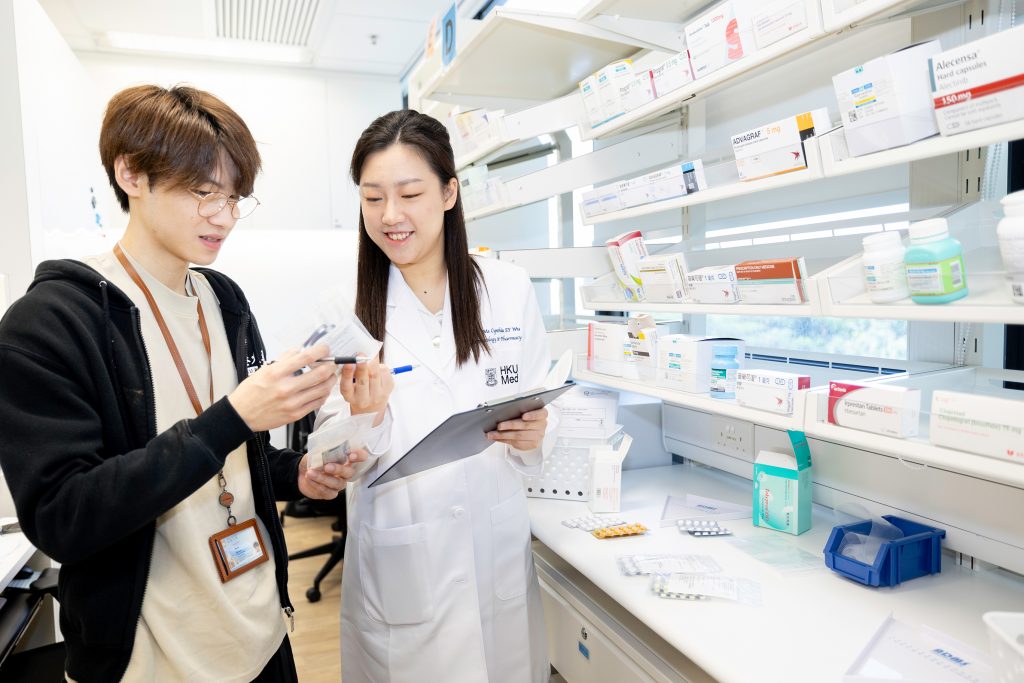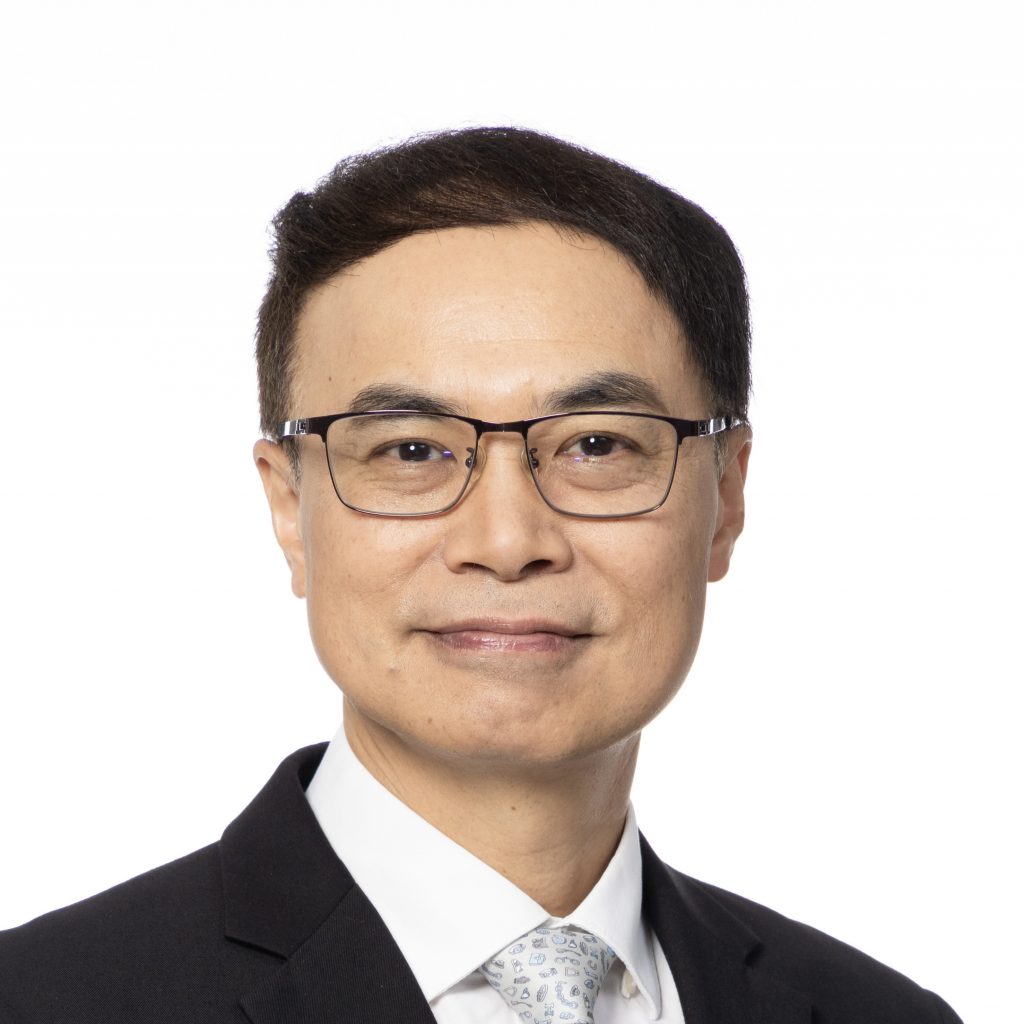May 2025 | Volume 26 No. 2
HKU Community Pharmacy Opens Shop
Listen to this article:
When Professor Ian Wong Chi-kei arrived at HKU from the UK in 2011 to head the Department of Pharmacology and Pharmacy, he was struck by one thing: training was focussed almost entirely on public hospitals. This was very unlike places like the UK, Canada and Australia where pharmacists in the community help patients manage their medications and contraindications, address difficulties such as swallowing tablets, offer vaccinations and give advice on minor ailments, chronic diseases and over-the-counter drugs.
“These other places had moved into community care but somehow in Hong Kong, everything was based around the hospital. Patients had to go to the hospital to get their medicine. I thought something had to be done about that because a lot of that medicine could actually be dispensed in the community,” he said.
His initial response was to work with local NGOs to help them set up community pharmacies in Wah Fu and Kwai Chung, which were thrust into the spotlight during the COVID-19 pandemic. At the time, people could not get medications or even simple over-the-counter remedies from hospitals. The community pharmacists became a resource to provide medicines and information, such as the fact that paracetamol is the same as Panadol and can provide similar pain relief.
In the wake of that experience, the Jockey Club approached Professor Wong and his team to help with a project that significantly expanded on his NGO-run model. The Jockey Club PHARM+ Community Medication Service Network Project has, since 2024, established six additional NGO-run community pharmacies in multiple districts in Hong Kong, using protocols and advice from Professor Wong and his team. The government has also voiced support for community pharmacies through its new policy to expand primary healthcare services and appointed Professor Wong to its Primary Healthcare Committee.
Real-world exposure
“Everything we had done before was somewhat academic, but with the pandemic and the government’s primary healthcare policy, suddenly we were in the right place and time to do the right things,” he said.
Professor Wong’s vision extended beyond being a supporter, though. He wanted to establish a community pharmacy at HKU itself to support teaching and research. A mock pharmacy had already been established, but this only offered students the chance to practise with empty boxes of medicines, with their teachers and others acting as patients. While students did spend short, limited times in real pharmacies, that depended on those pharmacies being able to accommodate such placements (not always possible). Professor Wong wanted to give students greater real-world exposure.
The opportunity to do this coincided with the requisitioning of the mock pharmacy’s location for other purposes. Professor Wong proposed to ramp things up and establish a real pharmacy within the Faculty of Medicine itself, and he received strong support.
The HKUMed Community Pharmacy, the first of its kind in Hong Kong, opened last November and is staffed by trained pharmacists, with pharmacy students learning alongside them under the supervision of HKU staff. Students from all years will spend time there and their responsibilities will increase as they reach senior years. Apart from dispensing, they will be exposed to the sensitive questions that pharmacists might deal with, such as embarrassing side effects or the benefits of lifestyle drugs such as Viagra.
“Our students need to learn how to handle those things. Initially, they will see how qualified pharmacists do this. Later, when they are senior and experienced enough, we will be able to get them to do some of the counselling themselves,” he said. “Our professors can now focus on supervising students rather than pretending to be patients and simulating discussions.”

Pharmacy students receive on-site training at the HKUMed Community Pharmacy alongside practising pharmacists.
Taking the lead
Students in other healthcare programmes, including MBBS, nursing and Chinese medicine, can also observe in the pharmacy as part of HKUMed’s promotion of interprofessional education.
The HKUMed Community Pharmacy will also support research, such as clinical trials looking at the cost and clinical outcomes when pharmacists, versus hospitals, manage drugs for patients with specific needs, such as epilepsy or allergies. It is hoped community pharmacies will be found to be a cost-effective alternative option to public hospitals.
Professor Wong, who stepped down as Head of the Department in 2024 and is focussing on initiatives such as the HKUMed Community Pharmacy, said they are also developing public education programmes with pharmaceutical organisations to raise people’s awareness of the services that pharmacies can provide.
“Our role is not about providing a service for the sake of providing a service. We are using our expertise and innovation to develop new services so other pharmacies can follow and patients can benefit,” he said. “As trainers of the next generation of leaders, we need to be a leader ourselves.”
We are using our expertise and innovation to develop new services so other pharmacies can follow and patients can benefit.

Professor Ian Wong Chi-kei

